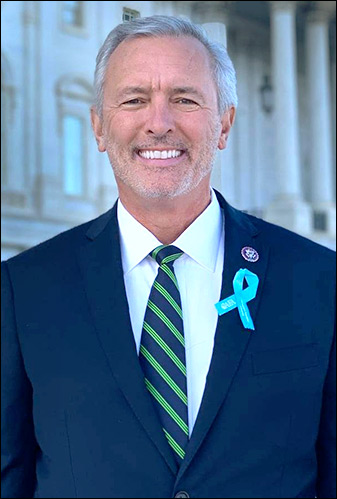By Jim Ellis
Feb. 4, 2022 — Nevada Sen. Catherine Cortez Masto (D), who trailed in the most recent published statewide poll (Trafalgar Group; Nov. 24-29; 1,034 likely Nevada general election voters; Adam Laxalt (R) 44 percent, Cortez Masto (D) 41 percent) has rebounded to regain the lead according to a new OH Predictive Insights survey, but warning signs persist for the first-term incumbent.The OHPI poll commissioned for the Nevada Independent news site (Jan. 19-26; 755 likely Nevada registered voters, online) finds Sen. Cortez Masto topping former state Attorney General Laxalt (R) in a general election ballot test by a 44-35 percent margin. While the spread is relatively strong in her favor, posting a 44 percent support number is low for any incumbent.
For example, the same poll tested Gov. Steve Sisolak, a Democrat, and found his preference figure reaching 52 percent if Clark County Sheriff Joe Lombardo were his Republican opponent, and 54 percent if former US Sen. Dean Heller were to become the Republican gubernatorial nominee. Because OHPI forced preference answers, meaning no recorded undecided responses for the governor’s ballot test, the Sisolak support numbers are high. It is unlikely, however, that a traditional preference question would find him dropping to the senator’s current support level.
The OHPI pollster isolated Sen. Cortez Masto’s most significant problem as her being tied to President Biden’s low approval ratings. According to this study, the president only posts a 41:53 percent favorable to unfavorable job approval index, and 33 percent, which is the poll’s top issue response, said that the economy and jobs are most important to them. Isolating Biden’s score on his handling of the economy, the president’s disapproval rose to 55 percent, darkening the political climate for the senator even further.
Laxalt’s low support number (35 percent) is likely due to him recording only a 76 percent preference factor among Republicans. This is likely due to the fact that challenger Sam Brown, a businessman and disabled Afghan War veteran, is becoming a significant contender for the Republican nomination.
Though the GOP sample segment is low in the OHPI survey – only 230 respondents and well below the 300 that becomes statistically significant in a state the size of Nevada – we still see only 37 percent of the Republican base supporting Laxalt while 14 percent names Brown as their preferred candidate. This means that 49 percent of those Republicans polled say they are undecided about whom to support in the GOP Senate primary. Despite having a short sample, the results suggest that Laxalt still has work to do in securing the nomination.
Another changing element that could affect this race, but in a heretofore unknown way, are the party registration changes occurring throughout 2021. Comparing the partisan breakdown in the state from January of 2021 through December of last year, both the Democrats and Republicans lost patrons. Democratic registration dropped 2.9 percent, while Republicans were down 2.5 percent. This meant that those registering Non-Partisan and “Other” were up substantially.







